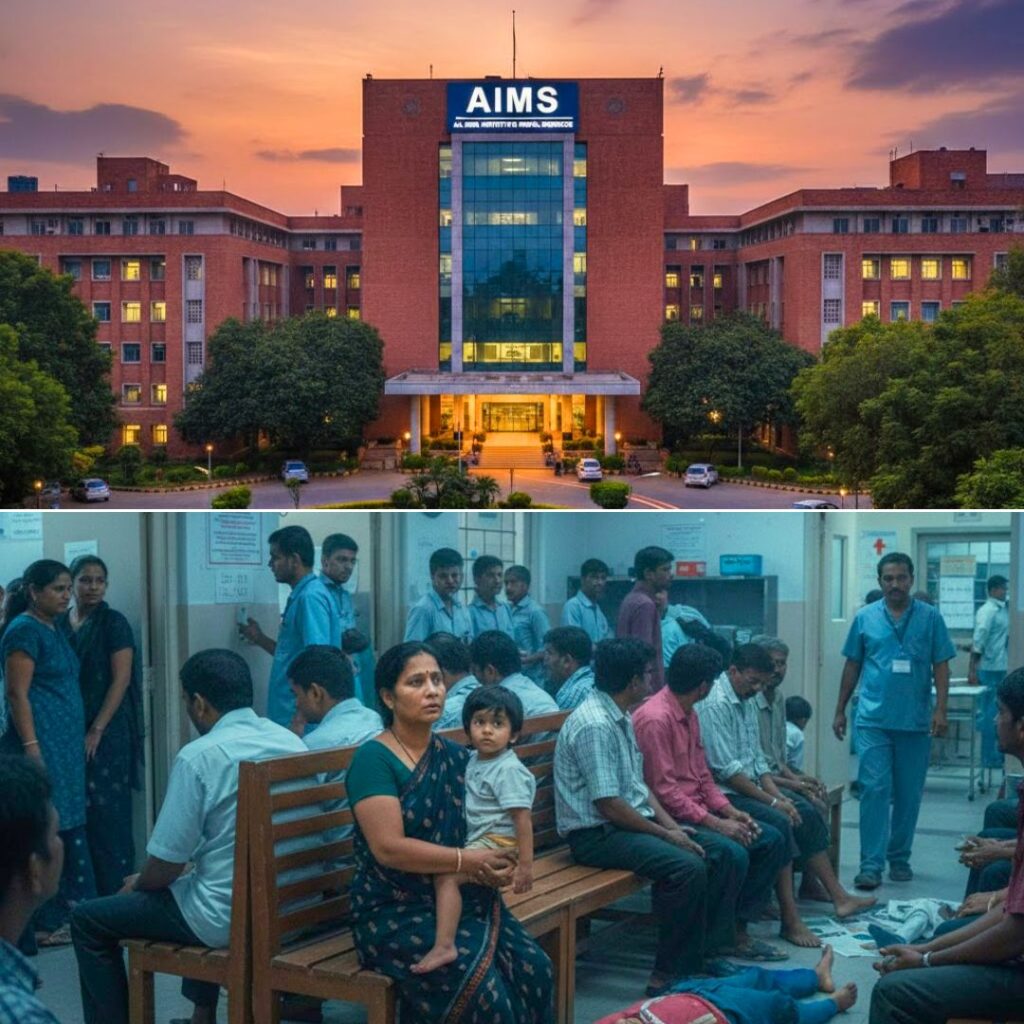January 12th, 2020 / 11:14 AM
/ Updated 18 hours ago
For the past two years, Omkar Sathe, a resident of Pune, has been advocating the use of reusable sanitary pads for a healthier life and a cleaner environment, through his organisation ‘Allforasmile’.
While speaking toThe Logical Indian, Omkar Sathe, CEO of Allforasmile, said: “Allforasmile is a social enterprise based in Pune, which focuses on livelihood projects. We create market-linked opportunities where women can earn a living.”
The Non-Government Organisation(NGO) carries out several programs, especially in rural areas, to make the general public aware of the issues associated with regular disposable pads.
Most recently, on January 6, Sathe conducted a workshop on ‘Used Sanitary Pads-plastic with a vengeance’ during the Kirloskar Vasundhara International Film Festival (KVIFF) to spread awareness about reusable sanitary products.
The problems with disposable sanitary pads are two-fold: environment-related and health-related, says Sathe.Once the disposable pads are thrown out, they either end up in a landfill for nearly 500 years or get burnt to release toxic gases.
Elaborating on the health issues, he says, “When women switched to commercial pads, because of the cost factor, they were not changing the pads as frequently as they should. Because of the claims of most companies that it can be used day-long, women end up not changing the pad for 12-15 hours. This causes lots of health issues like vaginal fungal infection.”
A reusable cloth pad, on the other hand, is safe for the body and the environment. Allforasmile produces cloth pads that are made of cotton.
“The pads are completely made out of cotton cloth. There are seven layers of brushed or combed cotton cloth – brushing makes it softer and more absorbent. The bottom-most layer is treated with PUL, which makes it leakproof;” says the 45-year-old.
The leakproof treatment of the layer lasts for 75 washes. So, a reusable pad will last three to five years, making it eco-friendly and pocket-friendly.
The organisation was started in 2010 to create livelihood for women, with stitching as the core skill area.
At present, around 50 women are associated with the organisation for making different products like cotton and canvas bags. Of this, ten women are involved in making reusable cloth pads.
“We buy the raw materials, we do the design, we cut it in our workshop and the ladies take the cut pieces back to their homes for stitching and then bring it back,” says Sathe.
They also provide some tailoring machines at the workshop which the women can use as and when needed.
The organisation only began producing reusable cloth pads two years ago.
“Two years ago, we were approached by one of the CSR organisations in Pune to make reusable cloth pads. Eco Femme – a pioneer organisation based out of Auroville, Puducherry – provided us with all the technical know-how of making reusable cloth pads. That’s how we started,” says Sathe.
After establishing the unit, they trained around 10 women in making reusable cloth pads. They then went to a couple of slums to talk about the product with the women there and raise awareness about cloth pads.
The team talked about the issues and told the women how cloth pads were a better, healthier alternative. However, convincing women to switch to cloth pads posed another challenge.
“To talk to some of the women about cloth pads was even more difficult because they had bad experiences with cloth. A cloth pad is fundamentally different from cloth. Unless you experience it yourself, it is difficult to believe what someone is telling you,” Sathe says.
However, Allforasmile’s continued efforts bore fruit and they have seen 30 per cent adoption in the target population.
Making a complete switch to reusable cloth pads is no cakewalk.
“If you have to make a 100 per cent switch to reusable pads, an extreme level of commitment and readiness is required. However, we really urge women to try it when they are most comfortable,” says Sathe.
Often, problems like leakage, concerns of hygiene and washing of the cloth pads deter women from using them.
“When we talk to the women, there are those who are not convinced or comfortable about the reusable products. Whether it is the washing part, or having the confidence that it will not leak, or it would not stain, they have a barrier to try it out. However, those women who are able to cross that barrier, they never look back. Simply because the comfort it provides them outweighs the challenges,” says Sathe.
Busting the various concerns and misconceptions associated with reusable cloth pads, Sathe says that they are hygienic, easy to wash and easy to dry.
“The clothes used to make these are very porous so that the blood dissolves very quickly and easily in the water. Just soaking it for 30 minutes takes most of the blood out. Washing with another couple of rounds of water will make it completely free of blood,” he says.
He adds that once women start using the reusable pads, they also figure out ways to solve the real-life challenges that they face.
Giving an example, Sathe recounts the story of a first-year college student, “Since she had classes the entire day, she would go to college wearing a regular disposable pad. During the first change, she would change over to the cloth pad. That way, she doesn’t have to change the reusable cloth pad itself in the college.”
“Even if you are able to use reusable cloth pads for 50 per cent of the time, it means that you have reduced 50 per cent of waste, you have experienced comfort for 50 per cent of the time. Even 50 per cent is huge when you look at the overall figures here,” he adds.
In a bid to introduce young girls to the concept of reusable products, Allforasmile has also undertaken a project called ‘Pads For Daughter.’ Through the project, they reach out to schoolgirls in rural areas, particularly young girls who have just started menstruating
“From our experience, we have realised that the younger generation is more open to these products. The girls are willing to go the extra mile in terms of washing the pad because that is one big hitch that people have,” says Sathe.
Sathe’s organisation provides the girls with a pack of four pads for Rs 400. The cost, Sathe says, is ‘way too low’ compared to disposable pads.
“Reusable pads cost about one-third of the normal disposable ones,” he adds.
However, the organisation’s role does not end with the provision of reusable cloth pads. They also carry out elaborate menstrual health programmes in consultation with experts in the field.
Moreover, the organisation goes one step further by engaging with the girls for months.
“We work with them on a continuous basis for several months. When we start talking to them, we carry out sessions and we distribute the cloth pads. We then go back to the same girls after about a month and a half to understand how their experience was and to know if there were any problems,” says Sathe.
“We also repeat the whole menstrual health conversation, because repetition is necessary for a behavioural change. We again go a third time to spend time with them and to sort out any issues they may have faced. There is a long term association we have with our target population. That really helps to bring about behavioural change,” Sathe toldThe Logical Indian.
Also Read:Fed Up Of Harmful Chemical-Laden Sanitary Napkins, 19-Yr-Old Started Making Her Own Reusable Cloth Pads
Contributors
Written by : Reethu Ravi
Edited by : Navya Singh












